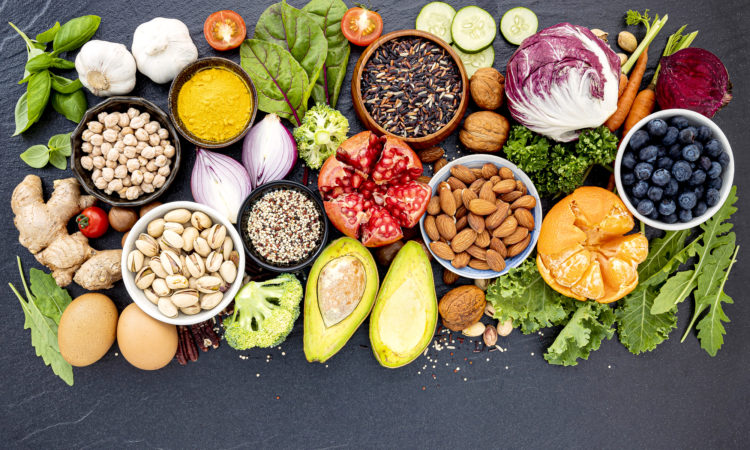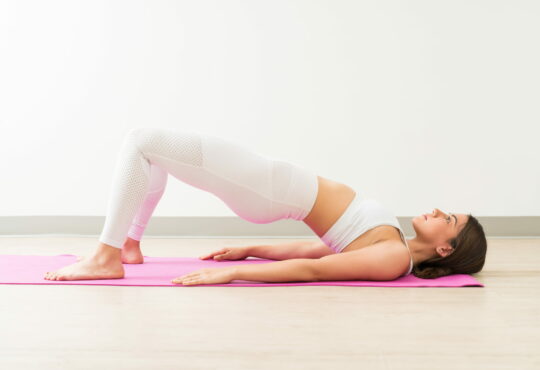The Japanese Anti-Aging Secret – and Most Accurate Marker of Your Biological Age

Forget about your calendar age except when you can save money by getting a senior discount.
What we need to know is, what is our biological age? That is – how close are we to chronic disease and death?
We all know 80-year-olds who can pass for 50 or 60 – and 50-year-olds who look and act 80.
Actually, how people look is a fairly good gauge of aging, but it’s subjective and imprecise.
What’s the most accurate biomarker to measure whether your body is biologically younger or older than your calendar years?
Over the decades, scientists have put forth and discovered many important things to measure, from your waist size to your blood pressure to your telomere length.
Telomeres are the caps at the ends of your DNA strands. They were the focus of a lot of study, especially ten to fifteen years ago.
Different scientists are studying different aspects of aging, and of course they all think their research is the most important.
None of it is insignificant. But what’s most helpful for us to know and implement into our lifestyles?
Japanese Scientists Studied Long-Lived People
They examined 1,554 Japanese who are aging “successfully.” That is, they’re living longer than average and they’re still living in the community – independently.
They include people over 100 and in their 90’s – and their children and spouses.
Their ability to live so long is especially notable given history. These people survived incredible hardships during and after World War II.
The researchers examined them for: telomere length, liver metabolism, glucose metabolism, liver function, inflammation, renal function, haematopoiesis and cellular senescence.
They also tested these subjects for their ability to perform physically and mentally, how many diseases they had and how much longer they survived.
The Winning Biomarker?
Chronic inflammation.
That serves as the best indicator of how well you’re aging, or whether you’re on the fast or slow highway to disease and death.
The study said: “. . . suppression of inflammation is the most important driver of successful longevity . . .”
They used three measurements of chronic inflation:
a. The common C-reactive protein test (CRP)
b. Plasma levels of Interleukin 6 (IL-6)
c. Plasma levels of Tumor Necrosis Factor-alpha (TNF-alpha)
What’s also exciting for us:
1. You can pretty easily find out where you stand.
2. Chronic inflammation is strongly correlated with lifestyle factors under your control.
Ask your doctor for a prescription to test your CRP, IL-6 and TNF-alpha. Or you could maybe find them available online.
And if this is difficult, no problem.
Just assume you now have chronic inflammation. Just about everybody does.
And then resolve to lower it.
The study said anti-inflammatory medicine could, therefore, lengthen people’s lives. But, in fairness, they noted current anti-inflammatory medicine has too many side effects for people to take in the long run. Therefore, they call for the development of “safe” anti-inflammatory medicine.
Fortunately, we don’t have to wait for “safe” pharmaceutical medicine .
How to Lower Chronic Inflammation Without Toxic Prescription Medicine
1. Regular moderate exercise
NOTE: “moderate” means MODERATE – not daily crossfit or training for ultramarathons.
Small amounts of intense exercise is good, but give yourself a few days to recover. Intense, long and heavy exercise actually raises acute inflammation, but later reduces chronic inflammation – as long as you give yourself a plenty of time to recover.
You get healthier while you’re resting from exercise, not while you’re exercising.
2. Manage your stress
Exercise is one way to do this. So are yoga and meditation. Spend time lying in complete relaxation. That’s the Relaxation Response as advocated by Herbert Benson.
Many people claim they “relax” after work by watching TV. Researchers recently found every hour of TV watched in a day increased your risk of inflammation-related death by 12%.
But they aren’t sure whether this is caused by the TV viewing or by lack of exercise, eating junk foods and losing sleep.
I strongly suggest you spend at least 20 minutes a day in a stress-reducing activity that occupies your mind as well as your body. Whether that’s yoga, meditation or lying in complete relaxation, is up to you. That will also give your mind a break from a barrage of news.
3. Sleep 7-9 hours per night.
Losing sleep increases chronic inflammation. Stop. You work hard. You deserve to sleep at least 7 hours tonight, and every night.
4. Eat anti-inflammatory foods. Avoid pro-inflammatory foods.
This is the most important way to lower your risk of inflammation-associated aging.
You want to eat well, and lose weight. Excess fat secretes inflammatory chemicals.
Avoid:
* Refined sugars and grains
* Processed foods
* Saturated and vegetable fat
Eat more:
* Vegetables and fruits, especially those high in antioxidants
* Turmeric, ginger and other spices
Such a diet drives down chronic inflammation, and helps you lose excess fat.
The 90-100+ year-old Japanese in the studies have probably eaten anti-inflammatory diets their entire lives, which may explain their longevity.
https://www.youtube.com/watch?v=pkPhH1RSkdsx
https://www.ncbi.nlm.nih.gov/pmc/articles/PMC3320801/
https://medlineplus.gov/lab-tests/c-reactive-protein-crp-test/
https://bengreenfieldfitness.com/podcast/qa-429/
https://www.ncbi.nlm.nih.gov/pmc/articles/PMC4634197/
https://www.medicalnewstoday.com/articles/315255
https://www.everydayhealth.com/wellness/united-states-of-stress/link-between-stress-inflammation/
https://www.health.harvard.edu/blog/yoga-could-slow-the-harmful-effects-of-stress-and-inflammation-2017101912588
https://www.ncbi.nlm.nih.gov/pmc/articles/PMC5476783/
https://www.ncbi.nlm.nih.gov/pmc/articles/PMC4851883/
https://www.scripps.org/news_items/4232-six-keys-to-reducing-inflammation
https://theconversation.com/research-check-will-binge-watching-tv-increase-your-risk-for-alzheimers-disease-and-diabetes-84264
https://www.ncbi.nlm.nih.gov/pmc/articles/PMC3548567/
https://www.youtube.com/watch?v=Dj_MaHa2NDY







